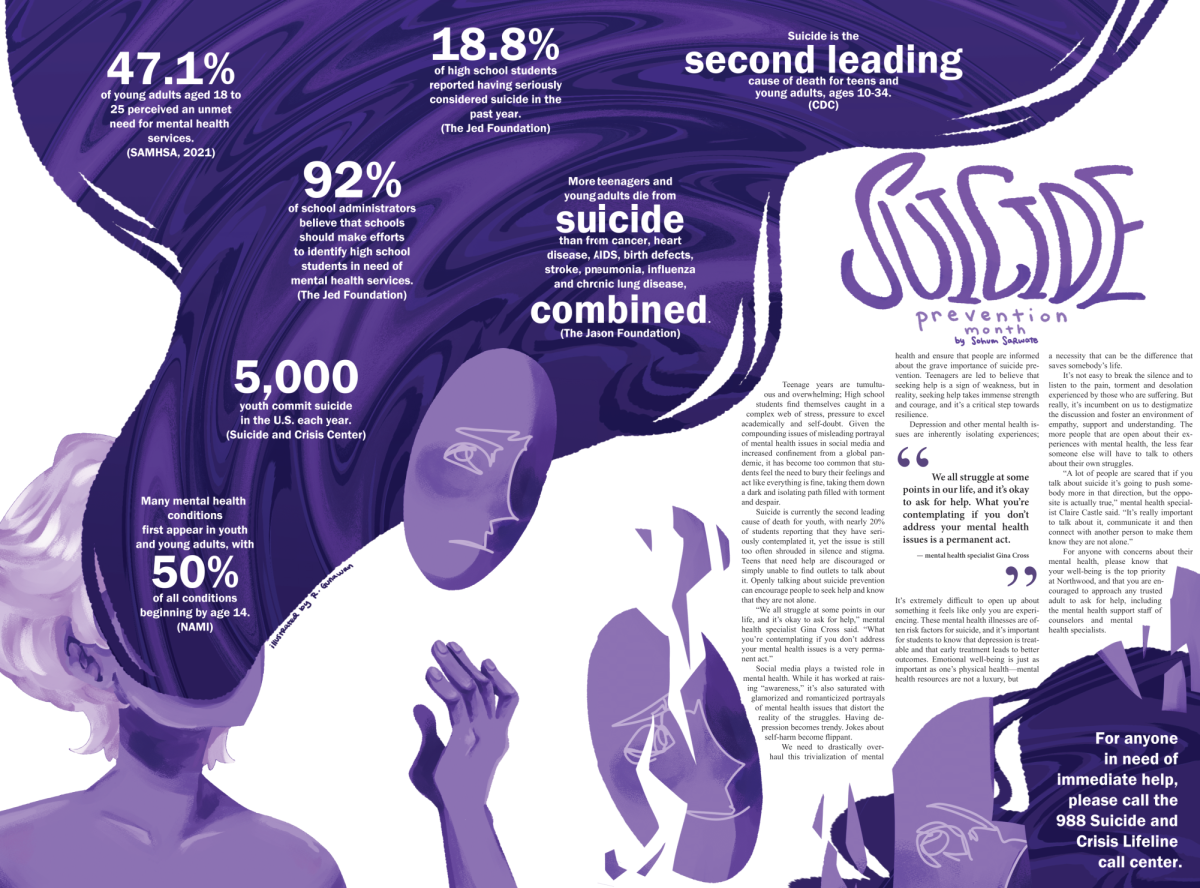Teenage years are tumultuous and overwhelming; High school students find themselves caught in a complex web of stress, pressure to excel academically and self-doubt. Given the compounding issues of misleading portrayal of mental health issues in social media and increased confinement from a global pandemic, it has become too common that students feel the need to bury their feelings and act like everything is fine, taking them down a dark and isolating path filled with torment and despair.
Suicide is currently the second leading cause of death for youth, with nearly 20% of students reporting that they have seriously contemplated it, yet the issue is still too often shrouded in silence and stigma. Teens that need help are discouraged or simply unable to find outlets to talk about it. Openly talking about suicide prevention can encourage people to seek help and know that there is a way out.
“We all struggle at some points in our life, and it’s okay to ask for help,” mental health specialist Gina Cross said. “We try to help our students understand that this feeling you might have right now is temporary, but what you’re contemplating if you don’t address your mental health issues is a very permanent act.”
Social media plays a twisted role in mental health. While it has worked at raising “awareness,” it’s also saturated with glamorized and romanticized portrayals of mental health issues that distort the reality of the struggles. Having depression becomes trendy. Jokes about self-harm become flippant.
We need to drastically overhaul this trivialization of mental health and ensure that people are informed about the grave importance of suicide prevention. Teenagers are led to believe that seeking help is a sign of weakness, but in reality, seeking help takes immense strength and courage, and it’s a critical step towards resilience.
Depression and other mental health issues are inherently isolating experiences; It’s extremely difficult to open up about something it feels like only you are experiencing. These mental health illnesses are often risk factors for suicide, and it’s important for students to know that depression is treatable and that early treatment leads to better outcomes. Emotional well-being is just as important as one’s physical health—mental health resources are not a luxury, but a necessity that can be the difference that saves somebody’s life.
It’s not easy to break the silence and to listen to the pain, torment and desolation experienced by those who are suffering. But really, it’s incumbent on us to destigmatize the discussion and foster an environment of empathy, support and understanding. The more people that are open about their experiences with mental health, the less fear someone else will have to talk to others about their own struggles.
“A lot of people are scared that if you talk about suicide it’s going to push somebody more in that direction, but the opposite is actually true,” mental health specialist Claire Castle said. “It’s really important to talk about it, communicate it and then connect with another person to make them know they are not alone.”
For anyone with concerns about their mental health, please know that your well-being is the top priority at Northwood, and that you are encouraged to approach any trusted adult to ask for help, including the mental health support staff of counselors and mental health specialists. For anyone in need of immediate help, please call the 988 Suicide and Crisis Lifeline call center.





















































